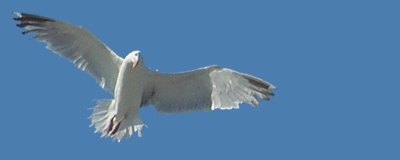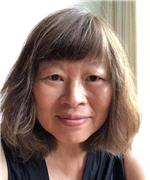|
|
 |
 |

李少君
Li Shaojun
 
李少君,1967年生,湖南湘乡人,1989年毕业于武汉大学新闻系,主要著作有《自然集》、《草根集》、《海天集》、《应该对春天有所表示》等十六部,被誉为“自然诗人”。曾任《天涯》杂志主编,现为《诗刊》主编。
Li Shaojun was born in Xiangxiang, Hunan Province in 1967. He earned a B.A. from Wuhan University with a major in journalism (1989). He has published sixteen books, including poetry collections Book of Nature, Book of Grass Roots, Book of the Sea and the Sky, and Let Us Do Something for Spring. Li Shaojun is known in China as The Naturalist Poet. He now serves as the editor-in-chief of China's Poetry Journal (Beijing).
|

|

译者
Translator
王美富
Meifu Wang
  王美富,1958年出生于台湾,现任《廿一世纪中国诗歌》主编兼翻译。台湾大学中文系学士,加州大学气象学硕士,普渡大学交通工程硕士。曾任世界银行交通专家,美国交通部工程师。诗歌散见于美国与中国文学刊物。王美富定居于伦敦。 王美富,1958年出生于台湾,现任《廿一世纪中国诗歌》主编兼翻译。台湾大学中文系学士,加州大学气象学硕士,普渡大学交通工程硕士。曾任世界银行交通专家,美国交通部工程师。诗歌散见于美国与中国文学刊物。王美富定居于伦敦。
Meifu Wang is the founder, editor and co-translator of 21st Century Chinese Poetry. Born in Taiwan, Meifu Wang earned her B.A. in foreign languages and world literature from National Taiwan University. Her poetry has appeared in various Chinese literary journals, in Seattle-area newspapers, and in Denver Quarterly. Meifu received a Henry Luce Foundation Fellowship for Chinese poetry translation for a residency at Vermont Studio Center. Meifu lives in London.
苏浪禹
Michael Soper
  苏浪禹,1946 生,美国华盛顿市人,曾任报社编辑,潜水艇水手,美国政府行政主管。对中国文字和诗歌有浓厚兴趣。他的著作包括四本个人诗集。 苏浪禹,1946 生,美国华盛顿市人,曾任报社编辑,潜水艇水手,美国政府行政主管。对中国文字和诗歌有浓厚兴趣。他的著作包括四本个人诗集。
Michael Soper was born 1946 in Washington DC. He was the last hot-metal apprentice typesetter in that city, and was intrigued by the challenges of word processing for Chinese character fonts. Michael went on to work for the US government as a printer, publications manager, editor, and contracting specialist. He has been translating Chinese poetry for almost twenty years.
|
 |
云之现代性 |
 |
Cloud's Modernity |
诗人们焦虑于所谓现代性问题
从山上到山下,他们不停地讨论
我则一点也不关心这个问题
太平洋有现代性吗?
南极呢?抑或还有九曲溪
它们有现代性吗?
珠穆朗玛峰有现代性?
黄山呢?还有武夷山
它们有现代性吗?
也许,云最具现代性
从李白的“众鸟高飞尽,孤云独去闲”
到柳宗元的“岩云无心自相逐”
再到郑愁予的“云游了三千岁月
终将云履脱在最西的峰上……”
从中国古人的“只可自怡悦,不堪持赠君”
到波德莱尔的巴黎呓语“我爱云……
过往的云……那边…….那边……奇妙的云!”
还有北美天空霸道凌厉的云
以及西亚高原上高冷飘忽的云
东南亚温润的云,热烈拥抱着每一个全球客
云卷云舒,云开云合
云,始终保持着现代性,高居现代性的前列
|
|
Poets fret about the so-called modernity,
lingering over the topic all the way up and down the mountain.
As for me, I don't worry about it at all.
Can we say the Pacific Ocean is modern?
How about Antarctica? The Nine-Turn Creek?
Are they modern?
And Everest?
How about Huangshan Mountain? Wuyi Mountain?
Are they modern?
Clouds are perhaps the modernest.
From Li Bai's verse “Birds have flown far and high, leaving behind a roving cloud”,
to Liu Zongyuan's “The clouds play tag with the precipice without a care”,
to Zheng Chouyu's “Three thousand eons of roaming, the clouds
finally come to rest on the westernmost peak . . .”
From the old Chinese saying— “Good enough for self-amusement,
but too scanty as a gift”,
to Baudelaire's dreamy voice—“I love clouds . . .passing clouds . . . there . . . over there. . .
marvelous clouds!”
Then, there are bellicose clouds in the sky over North America,
the icy cirrus clouds over western Asiatic plateau,
and the warm passionate clouds of Southeast Asia for every globe trotter.
Roving and roiling, merging and diverging,
clouds are forever modern,
the avant-garde of Modernism.
|
 |
我是有大海的人 |
 |
I Have the Ocean In Me |
从高山上下来的人
会觉得平地太平淡没有起伏
从草原上走来的人
会觉得城市太拥挤太过狭窄
从森林里出来的人
会觉得每条街道都缺乏内涵和深度
从大海上过来的人
会觉得每个地方都过于压抑和单调
我是有大海的人
我所经历过的一切你们永远不知道
我是有大海的人
我对很多事情的看法和你们不一样
海鸥踏浪,海鸥有自己的生活方式
沿着晨曦的路线,追逐蔚蓝的方向
巨鲸巡游,胸怀和视野若垂天之云
以云淡风轻的定力,赢得风平浪静
我是有大海的人
我的激情,是一阵自由的海上雄风
浩浩荡荡掠过这一个世界……
|
|
People from high mountains
see the plains as flat and uninteresting.
People from the grassland
feel the cities are congested and constricted.
People from the forest
see the streets as sterile and depthless.
People from the sea
feel all other places are stuffy and drab.
I am a man of the sea,
what I have experienced, you will never know.
The sea is with me,
my perspectives are often different from yours.
Seagulls tread the waves, living their lifestyle,
following the morning sun into the magnificent blue.
Whales patrol their realm, freehearted and high-minded,
the tireless wanderers of the untroubled sea.
I have the ocean in me.
My heart is as free and willful as the wind at sea,
going where it pleases, till the end of the world. . .
|
 |
仲夏 |
 |
Idle Thoughts in Springtime |
仲夏,平静的林子里暗藏着不平静
树下呈现了一幕蜘蛛的日常生活情节
先是一长串蛛丝从树上自然垂落
悬挂在绿叶和青草丛中
蜘蛛吊在上面,享受着这在风中悠闲摇晃的自在
聆听从左边跳到右边的鸟啼
临近正午,蜘蛛可能饿了,开始结网
很快地,一张蛛网织在了树枝之间
蜘蛛趴伏一角,静候猎物出现
惊心动魄的捕杀往往在瞬间完成
漫不经心误撞入网的小飞虫
一秒钟前还是自由潇洒的飞行员呢
就这样不明不白地成了蜘蛛的美味午餐
前者不费心机
后者费尽心机
但皆成自然
|
|
Midsummer, the forest hides its restlessness.
Under the tree is a snapshot of a spider's daily life.
First, a long silk drops down from the tree,
hanging from a leaf all the way to the grass.
The spider swings freely and enjoys itself in the breeze,
listening to a bird that's hopping left and right.
Almost noon, the ravenous spider starts to weave a web,
which spans the branches in no time.
The spider crouches in a corner and waits for a prey.
The thrill of killing is over in just a second:
a small insect — a dashing pilot just a second ago —
accidentally hits the web. Unsuspecting, unaware,
it has become the spider's delicious lunch.
The former is unconcerned;
the latter no longer needs to concern;
together they personify the natural world.
|
|
|







